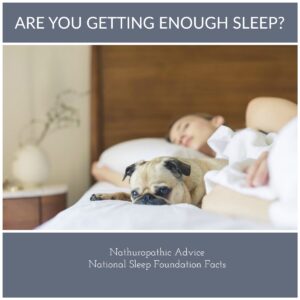Are you getting enough sleep?

This may seem like a simple question to answer. But is it? There are many people, not giving themselves enough sleep to help their body function. And most are unaware of the potential adverse health effects of chronic sleep loss.
One of the most common things we see in Clinic at Vital Effect with our clients is the link between chronic health conditions and a lack of sleep. Research states that even short-term restrictions in sleep result in a variety of adverse physiological effects, including hypertension, cardiovascular disease, developing symptomatic diabetes with glucose impairment, increased inflammation and activation of the sympathetic nervous system (SNS).
Sleep plays a vital role to help us solidify and consolidate memories, restore and rejuvenate our bodies, grow muscles, repair tissue and synthesise hormones.
Many of our clients’ state that they nap during the day and then can’t sleep at night. If you nap less than 30 minutes during the day, this can promote wakefulness and enhance performance and learning ability. This is why on our highways, there’s regular signs recommending naps to break the trip and avoid accidents. As a stark contrast, the habit of taking frequent long naps, longer than 30 minutes can actually be associated with higher mortality and morbidity, especially in the elderly. The best way to nap, is by training the body and mind to awaken after a brief nap.
Many individuals are unsure how much sleep they need each night and although research cannot indicate the exact amount of sleep needed by an individual, the National Sleep Foundation have a recommended window that identifies how much sleep an individual should have:
- Newborns (0-3 months): need 14-17 hours sleep
- Infants (4-11 months): need 12-15 hours sleep
- Toddlers (1-2 years): need 11-14 hours sleep
- Pre-schoolers (3-5 years old): need 10-13 hours sleep
- School age children (6-13 years old): need 9-11 hours sleep
- Teenagers (14-17 years old): need 8-10 hours sleep
- Younger adults (18-25 years old): need 7-9 hours sleep
- Adults (26-64 years old): need 7-9 hours sleep
- Older adults (65 years +): need 7-8 hours sleep
To improve your sleep habits and get the best out of your sleep, try these 7 simple tips:
- Stick to a sleep schedule to train your body
- Practice a relaxing bedtime ritual: having a shower before bed, or enjoying a warm cup of herbal chamomile/lavender tea.
- Ensure your bedroom is dark, warm and as comfortable as possible.
- Pick that perfect pillow and mattress for the best comfort
- Avoid watching TV or using the computer before bed
- Avoid stimulants such as caffeine and alcohol as these will disrupt your sleep
- Remove all electronics away from your bed, such as mobile phones and iPads
Our Naturopath likes to reinforce to all her patients that sleep should not be considered a luxury, but a vital component of a healthy lifestyle.
